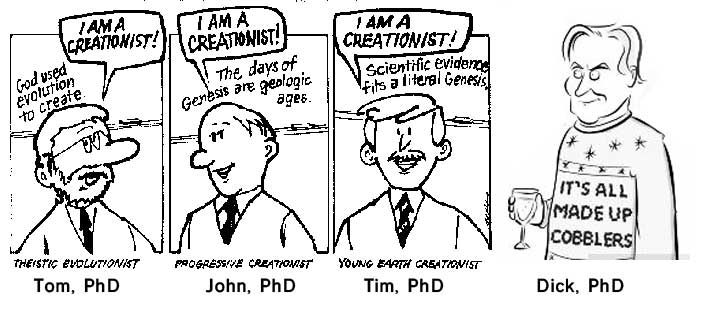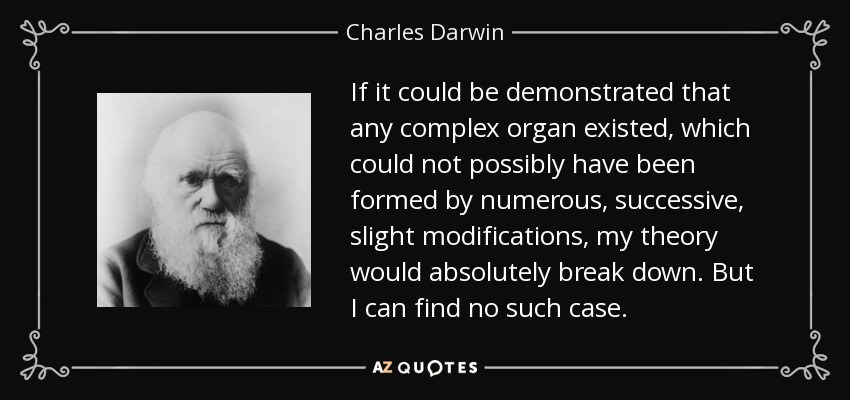From atheism to Genesis
For most of my life I was an atheist, wholeheartedly believing in the ‘scientific fact’ of evolution. I was told it was true right from the start of my education, through to studying molecular biology at University.
Back then, any suggestion that God had a hand in anything was met with me ridiculing those that suggested it. The language I used was pretty much the language used by any atheist today. Even after my conversion to Christianity at 37, I hung onto most of my evolutionary beliefs and tried to reconcile what Genesis describes through my evolutionary worldview. Even a close friend that hinted there’s evidence to support the literal reading of Genesis, along with its timescale, was met with scepticism.
A turning point was understanding that you first accept most starting points by faith (e.g. spontaneous creation of life via natural processes, God creating etc) then interpret any evidence through that faith position, thus turning a ‘faith position’ into some sort of ‘factual evidence’ for that particular starting position
Knowing this, I then had the freedom to consider my original evolutionary position, particularly its founding assumptions. If I could at least, consider the evidence through a different worldview , I could at the very least consider which of the starting positions was most reasonable and consistent with the evidence observable today.

Sadly for many, Christians who have accepted the Bible as true abandon their faith in light of the evolutionary worldview. For me at least, it has been the other way round. It has been a largely personal endeavour as very few churches seem to consider the debate worthy of consideration, happily trying to accommodate naturalistic thinking and evolution into the Genesis account. In doing so, the historical narrative of Genesis falls to pieces, or at best, Christians need to do some seriously impressive theological gymnastics to turn 6 days of creation into the eons of time required by the evolutionary worldview.
Despite atheists claims and the abuse that seems to come from many of them, this has never been a clash of religion versus science, as if science is about objective truth and religion is just about fuzzy thoughts and emotions. It is a clash of worldviews, Christianity with its belief that God created and a worldwide flood that shaped most of the geology we see today, versus naturalism that says life spontaneously created itself via natural processes, then other natural processes took this simple life form and over long periods of time turned into you and me.
To believe that life was spontaneously created and over periods of time turned into you and me requires faith. A huge amount of faith because neither spontaneous creation in life has ever been observed, simulated or reproduced. Secondly, it has never been observed that one life form turns into another, not has it been observed that something simple has turned into something more complex. What has been observed is that things tend to stay true to their kind (dogs remain dogs etc) but vary considerably (my Lahsa Apso and Labradoodle, cats and parrots are daily examples of the variation within the kinds).

So what’s all the fuss about on this evolution/creation debate? In essence the debate is about two faith positions clashing in how they interpret the world around us. For example, given that evolution (one species into another through mutation/selection) has never been observed, it is proposed this has to happen over long periods of time very slowly. Therefore, long periods of time is used to interpret many different types of evidence. So when you look at rock strata as an example, rather than happening quickly in a geologic event such as a global flood, geologists will have to explain it happening over long periods of time. After all, the fossils within the sedimentary rock are assumed to be old, and therefore rocks need to be old too.
So it is clear that many untestable and unprovable assumptions are used to confirm to the evolutionary worldview is true. Various dating methods for example, also use these types of assumptions. If you assume something is true, evidence interpreted through these assumptions will conclude those assumption is true. Make different assumptions and interpret that evidence through those, the conclusion will be different. If two conclusions are very different, they can’t both be true.
So for example, evolution requires growth in DNA information so that a simple organism can over time gain additional information to code for the higher level organism. Yet what we see in examining DNA today is that the various genomes are in fact breaking down. Mutation rates are increasing which is not leading to additional DNA information, it is doing the opposite, breaking what is already there. So whilst broken DNA can lead to some functional advantage (e.g. bacterial resistance to antibiotics) no new information is being created. Natural selecton can only select on what is already there, nothing new is produced. Whilst gene duplication, the only vehicle through which DNA can ‘grow’, such a mutation is catastrophic for the organism (infertility, death).
In all the debates between atheists and people who believe Genesis to be a true account of origins, rarely is there are mature debate at all. It often ends up with atheists (or theistic evolutionists for that matter ) resorting to schoolboy emotional attacks and attachment of labels such as ‘fundamentalist’ that prevent any mature debate happening.
The more I examine evolutionary claims, the more I see an a priori commitment to a particular faith position, even though it is very easy to falsify these claims.
I would suggest an Christian wishing to stand up for their beliefs in Genesis, be prepared. Study the philosophy of science diligently and equip yourself with as much scientific understanding as possible. It’s a challenging yet rewarding pursuit which should serve to strengthen ones Christian faith. Once equipped with a Christian worldview, it is a valuable way in which you can understand any truth claim whether it is in the world of science, philosophy, art or culture . By doing so, Christianity is released from its cultural captivity within churches into society to be the redemptive force it should be.
For further reading, consider Nancy Pearcey’s ‘Liberating Christianity From it’s Cultural Captivity’, Alvin Platinga’s ‘Where the Clash Really Lies’ or AF Chalmers ‘So What is This Thing Called Science?’
